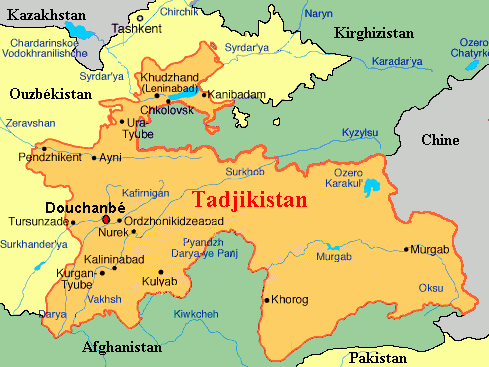« Le Japon est un peuple ethniquement et culturellement homogène », telle est l’idée dominante, héritée de la mythologie et de l’idéologie politiques modernes – qui a longtemps prévalu dans ce pays. À ce titre, pendant la période d’expansion coloniale en Asie (1895 – 1945), les populations ethniquement non japonaises ont été assimilées par la force (les habitants des îles Ryûkyû – l’actuelle préfecture d’Okinawa – et les Ainu) ou réduites au travail forcé (Coréens). D’autres minorités sont le résultat des migrations internationales contemporaines et de divisions culturelles au sein même de la société japonaise.
Survol sur les minorités au Japon
Le Japon est le « pays des dieux », un pays unique peuplé par une race homogène : une interprétation courante des groupes ethniques et des nations souhaitant se singulariser par rapport aux autres. Cette vision est défendue par les politiques et longtemps soutenue par la communauté scientifique qui défendait la thèse d’une « japonéité » se fondant sur une explication biologique, servant de prétexte à une appartenance communautaire reposant sur le « droit du sang ».
Toutefois, il existe des disparités au sein même de la population de même sang, une « caste » a pendant longtemps été reléguée : les Burakumin (ou « gens des hameaux » – sous-entendu « spéciaux »). Les personnes (et leurs collatéraux) exerçant des métiers « impurs » d’un point de vue religieux, parce qu’en relation avec la chair morte ou la mort, voire pour le caractère itinérant de leur profession (forains), ont été mises au ban de la société (comme les comédiens ou les bourreaux de la société française d’Ancien Régime). La discrimination à l’encontre de ces individus est en voie de disparition. D’autres Japonais, les victimes des bombes atomiques américaines, ont aussi été considérées avec un certain mépris, comme l’attesterait des enquêtes menées sur les demandes en mariage ou les demandes d’aides sociales (travail, assurance maladie), peut-être en raison de la visibilité de leurs blessures, qui serait une sorte de rappel d’un passé que l’on souhaiterait oublier.
La logique des vertus de l’homogénéité ethnique a été mise à mal par l’expérience d’un retour au pays de descendants d’émigrants japonais, les « personnes de lignée japonaise » (Nikkeijin). Ces derniers ont bénéficié – pendant la phase de reconstruction et d’essor économique de l’après-guerre – d’une politique favorable d’immigration, en réalité une politique officieuse d’immigration choisie. Ils seraient, à l’heure actuelle, environ 700 000 résidents permanents. Beaucoup sont revenus d’Amérique latine (principalement du Brésil), où ils ont servi de main-d’œuvre dans les plantations de café, des États-Unis, où ils ont été victimes de sévères lois sur l’immigration et – après la déclaration de guerre avec le Japon – de persécutions et d’internement dans des camps, et des Philippines. Ces « Japonais de sang » ont également été soumis, à leur arrivée, à un statut particulier (titre de résident temporaire, logement dans des quartiers réservés) et connaissent de nos jours une crise d’identité, mais aussi des difficultés d’insertion, notamment du fait de leur acculturation et, parfois d’une maîtrise insuffisante de la langue.
 Avec les Ainu, objet de cet article, les 1,4 million d’habitants des îles Ryûkyû (actuelle préfecture d’Okinawa, annexée en 1879, puis occupée par l’armée étatsunienne entre 1945 et 1972) ont aussi bénéficié d’un statut particulier, parce que peuple autochtone. Engagés dans la lutte pour la rétrocession de l’île au Japon, les habitants d’Okinawa ont vu leur niveau de vie nettement amélioré, bien qu’encore inférieur à celui des autres préfectures japonaises.
Avec les Ainu, objet de cet article, les 1,4 million d’habitants des îles Ryûkyû (actuelle préfecture d’Okinawa, annexée en 1879, puis occupée par l’armée étatsunienne entre 1945 et 1972) ont aussi bénéficié d’un statut particulier, parce que peuple autochtone. Engagés dans la lutte pour la rétrocession de l’île au Japon, les habitants d’Okinawa ont vu leur niveau de vie nettement amélioré, bien qu’encore inférieur à celui des autres préfectures japonaises.
La principale minorité issue de l’immigration est d’origine coréenne (700 000 personnes en 2005), qualifiés de « Ceux qui sont au Japon » (Zainichi). Cette communauté est venue sur le sol national japonais, lors de l’annexion de leur pays (1910 – 1945). Traités avec mépris, ces travailleurs – d’abord volontaires – puis soumis au travail obligatoire vivaient dans des espaces réservés (buraku) et ont mêmes été victimes de massacres collectifs : en 1923, dans les circonstances difficiles du tremblement de terre, bon nombre ont été tués par les Tôkyôites qui les ont accusés d’avoir empoisonné l’eau de consommation courante. Pendant la Seconde Guerre mondiale, ils seront enrôlés de force, selon un système proche du Service du travail obligatoire allemand (S.T.O.). En 1945, plus de 2 millions de Coréens retourneront dans la péninsule, 600 000 resteront au Japon, mais privés de nationalité jusqu’en 1965 (ils deviendront « Sud-Coréens » en 1965). Le Japon compte aussi une minorité chinoise, d’immigrants venus des pays littoraux ou insulaires de l’Océan Indien et du Pacifique et un faible nombre de ressortissants des pays occidentaux, principalement nord-américains.
Ce tableau mérite cependant d’être nettement tempéré, car depuis l’ouverture du Japon sur le monde et la pacification de ces mœurs politiques en Asie, ce pays, doté d’une Constitution réellement démocratique, est progressivement devenu une terre d’accueil pour les étrangers (principalement asiatiques, des Chinois et des Coréens, soit 57 % des résidents étrangers au Japon), en raison du changement des mentalités et du besoin d’immigration, engendré par le vieillissement de la population : les étrangers représentent 2 % de la population totale, et leur nombre a augmenté de 50 % depuis le début du deuxième millénaire. Les nouveaux venus sans qualifications ou ne maîtrisant pas la langue sont, comme dans tous les pays économiquement développés, bien souvent réduits aux tâches les moins valorisantes ou les plus pénibles (ce sont les trois « K » : kitsui, pénible; kitanai, sale; kiken, dangereux), mais de réelles possibilités d’intégration – y compris l’adoption de la nationalité japonaise – existent pour eux. Chaque année, 42 000 nouvelles unions, soit 6 % des mariages annuels au Japon, sont le fait de couples internationaux (dans 80 % des cas, l’époux est Japonais). Dans la réalité, le regard porté par les Japonais sur les minorités asiatiques a changé, en dépit de la persistance de discriminations réelles. Le Japon paraît être en transition et s’adapter avec prudence aux réalités migratoires, corollaire de la troisième mondialisation.
La culture ainu : origines et principales caractéristiques
L’origine des populations ainu serait Préhistorique : elle remonterait à la période Jômon (voir notre article sur ce sujet), et son origine exacte reste encore incertaine. Certains individus sont parfois morphologiquement différents des hommes de la période Jômon, leurs phénotypes ayant des caractéristiques pouvant les rattacher aux populations caucasiennes. La culture Jômon sera progressivement subjuguée par une nouvelle vague de migrants venue du continent à la période Yayoi (Ve siècle av. J.-C. – IIIe siècle ap. J.-C.), importatrice de technologies (riziculture et métallurgie) et d’une culture nouvelles : leurs descendants sont les Japonais. Les populations constitutives de la culture ainu étaient implantés dans la zone septentrionale insulaire de Hokkaidô, de Tôhoku, des Kouriles, de Sakhaline et du sud de la péninsulaire du Kamtchakta. Les spécialistes penchent désormais pour la cœxistence de plusieurs groupes ethniques différents répartis dans la partie septentrionale du Japon actuel : les Emishi (voir infra) – repoussés par les Japonais – venus du Nord du Tôhoku et du Sud-Ouest de Hokkaidô- se seraient amalgamés avec les populations existantes (Ashihase).
Au VIIIe siècle, les ethnies ainu se répartissent sur les îles Kouriles et Sakhaline. Dans les premières annales du Japon (le Kojiki et le Nihongi ou Nihonshoki), ces derniers sont dépeints comme appartenant à une ethnie différente, farouche et sont qualifiés de différents ethnonymes (dont celui d’Emishi) faisant référence à leur pilosité corporelle abondante. Ces populations se qualifient elles-mêmes de Ainu, qui signifie : « être humain ».
La langue ainu est radicalement différente du japonais (qui appartient au groupe des langues altaïques – à l’instar du turc, du mongol, du toungouse et du coréen) aussi bien d’un point de vue syntaxique, phonologique, morphologique que du vocabulaire (comme la langue basque dans le Sud-Ouest de la France et en Espagne). Enfin, la culture ainu est une tradition orale, son système d’écriture repose sur des translittérations empruntées aux langues des civilisations russes (alphabet cyrillique) et japonaises (katakana). Plusieurs dialectes la composent, mais une langue commune, véhiculaire était compréhensible par tous les membres de la communauté, parce que réservée à la transmission culturelle, notamment des mythes. La langue ainu est en voie d’extinction, peut-être une quinzaine de locuteurs l’utiliseraient de nos jours.
La culture ainu a hérité de nombreuses pratiques de la période protohistorique, notamment le tatouage, les fondements de la religion, la chasse, mais avec une évolution singulière dans le temps, constitutrice d’une « identité ». La société ainu est restée pendant longtemps traditionnelle et proche de la nature : ce « retard » technologique par rapport à la Russie et au Japon l’a – à terme – marginalisée.
Les Ainu face à la colonisation japonaise dans un contexte politique et économique d’expansion impériale (1869 – 1945)

Les Ainu se trouvaient, du point du vue des gouvernements successifs japonais, au-delà du « limes ». Si les clans du Tôhoku (Nord-Est de l’île d’Honshû) ont finalement adopté la culture dominante, les autres groupes ont longtemps offert une âpre résistance au front pionnier japonais. Dès la période de Heian, les marches de l’État japonais étaient administrées par un officier supérieur, chargé de soumettre les Emishi : le shôgun. Au XVe siècle, les Japonais commencent à s’implanter dans le Sud-Ouest de Hokkaidô (Ezochi, appellation ainu) et à repousser les populations locales vers le nord, mais celles-ci parviennent à faire refluer l’invasion, puis à renouer des relations économiques avec le Japon.
À l’époque d’Edo (1600 – 1867), la politique de fermeture adoptée par le shôgunat ne s’applique pas aux Ainu : ces derniers commercent abondamment avec les Chinois et les Russes. Mais, la progression russe d’Ouest en Est à travers l’Asie centrale vient se heurter aux intérêts japonais : les enjeux se cristallisent autour du contrôle de l’île Ezo (ancienne appellation de Hokkaidô). Le Bakufu renforce son emprise sur l’île en détruisant la résistance des populations autochtones (bataille de Knashiri-Menashi, 1789) : l’île est économiquement exploitée par le Japon, notamment pour la production d’engrais de harengs.
Une rupture s’opère au XVIIIe siècle, l’invasion russe du Nord des îles Kouriles et de Sakhaline (à partir de 1730) pousse le gouvernement japonais à poursuivre une politique d’assimilation des peuples indigènes pour justifier sa revendication territoriale (un traité russo-nippon fixe la frontière entre les deux États, traité de Shimoda, 1854 : la ligne de partage séparant les deux empires se situant entre les îles d’Urup et d’Etorofu, voir notre article sur le sujet).
La restauration impériale (1868) et l’essor économique et industriel sont accompagnés d’un accroissement de la population japonaise : bon nombre d’insulaires partent s’installer à l’étranger, notamment en Amérique du Sud. En 1869, l’île de Hokkaidô est annexée à l’Empire et la colonisation favorisée (une commission de colonisation est créée); en 1886, l’île devient une préfecture, avec un statut particulier. Les Ainu sont rapidement soumis à un régime d’exception, leur interdisant toute activité culturelle (tatouages, pratiques funéraires, etc.) et économique traditionnelle (pêche, chasse). La situation connaît une aggravation, lorsqu’un nouveau traité russo-japonais rattache toutes les îles Kouriles au Japon, en échange de l’actuelle Sakhaline (1875). Les Ainu de Sakhaline sont contraints de rejoindre Hokkaidô, où ils sont cantonnés dans des réserves.
La politique cœrcitive japonaise vise à transformer la population, paupérisée par l’accaparement des terres par des colons japonais, en agriculteurs. Une politique volontariste d’assimilation, oblige les enfants des familles ainu à se rendre dans des écoles spécifiques où les enseignements sont dispensés en langue japonaise, les mariages mixtes sont encouragés. Par ailleurs, la colonisation a des effets ravageurs sur les autochtones, marqués psychologiquement, d’aucuns sombrent dans l’alcool, d’autres périssent des maladies importées par les immigrants nippons.
Les Ainu sont peu à peu soumis à un statut particulier. La commission de Colonisation adopte officiellement le terme de kyudojin, qui signifie « anciens aborigènes » (1878). Plus tard, en 1899, une loi est votée par les représentants japonais pour « protéger » les Ainu, considérés comme une « race primitive sur le déclin ». La politique coloniale japonaise se calque ainsi sur la pensée occidentale, notamment les théories évolutionnistes alors en vogue, et mise au service d’une politique expansionniste. Les Ainu et leurs territoires sont devenus une sorte de musée, de « zoo humain » (déjà vu sous d’autres tropiques), que viennent étudier et photographier les anthropologues occidentaux : des Ainu sont mêmes présentés aux expositions internationales de Chicago (1904) et de Londres (1910)…
Les Ainu vivent dans une situation de grande précarité, et ce n’est pas l’exode massif de population de la fin de la Seconde Guerre mondiale (1,5 million de Japonais supplémentaires se rendent sur l’île d’Hokkaidô, poussés par l’avancée soviétique en extrême-Orient et dans les îles Kouriles) qui permit d’apporter une amélioration à leur sort…
La politique coloniale japonaise est, nous l’avons dit, une appropriation et une adaptation des politiques coloniales européennes. Les autorités japonaises, nous l’avons vu, se sont octroyés le « pouvoir de nommer » la population cible, afin de l’individualiser et d’en souligner l’altérité, voire de la « dévaloriser » (la référence à la pilosité et le statut d’aborigène, voir supra). Cette qualification (1878) a été une étape déterminante à la création d’un statut singulier (1899) justifiant les pratiques discriminatoires et répressives, processus que l’on retrouve dans toutes les colonisations. Le statut de kyudojin n’est pas sans rappeler celui de l’indigénat dans les colonies françaises d’Afrique ou celui des Indiens d’Amérique du Nord.
Ces mesures administratives sont à l’origine d’un mouvement de défense de la part des populations ainu, même si certains, convertis au christianisme, espèrent que l’assimilation leur permettra d’obtenir une égalité de droit avec les Japonais. En 1930, un mouvement associatif voit le jour et réclame la révision de la « loi discriminatoire » de 1899. En outre, le processus de démocratisation enclenché après la défaite du Japon (1945) créé un climat plus favorable pour le mouvement revendicatif, qui peut notamment faire référence à l’article 13 de la Constitution qui rendent illégales la discrimination et l’assimilation du peuple ainu.
Les nouvelles représentations du peuple ainu : l’acquisition d’une reconnaissance officielle sous regard international
(1945 à nos jours)
Les années 1960 marquent un tournant. Pendant cette période encore, l’image des Ainu est instrumentalisée : les guides touristiques, notamment francophone, décrivent les populations locales comme « une race frappée d’impuissance » (guide Nagel, 1964); des scientifiques japonais vont même jusqu’à leur nier toute aptitude technique propre (ce qu’invalide les découvertes archéologiques actuelles). À la fin de la décennie, en pleine phase contestataire au Japon (mouvements des habitants et mouvements contre les discriminations) et dans le monde (Mai 1968), les associations de défense de la communauté ainu donnent de la voix par des actions symboliques (protestations contre la commémoration du centenaire de la colonisation de Hokkaidô, notamment).
 En 1968, le gouvernement japonais fait un pas en faveur de la communauté en révisant partiellement la loi de 1899 (sans en modifier le caractère discriminatoire) et en proposant des aides sociales. S’inspirant des mouvements de revendications des peuples autochtones de par le monde et des mouvements anti-colonialistes de libération nationale, le mouvement revendicatif ainu adopte une stratégie internationale, se fondant sur la charte internationale des droits de l’Homme.
En 1968, le gouvernement japonais fait un pas en faveur de la communauté en révisant partiellement la loi de 1899 (sans en modifier le caractère discriminatoire) et en proposant des aides sociales. S’inspirant des mouvements de revendications des peuples autochtones de par le monde et des mouvements anti-colonialistes de libération nationale, le mouvement revendicatif ainu adopte une stratégie internationale, se fondant sur la charte internationale des droits de l’Homme.
L’association des revendications à ces valeurs universelles oblige le gouvernement japonais, en pleine expansion économique bâtie sur une représentation pacifique du pays, à signer la Convention internationale sur l’élimination de toutes les formes de discrimination raciale (1978) et le Pacte international sur les droits civils et politiques (1979) et à reconnaître les droits des minorités. Mais l’existence de ces dernières est niée, le Premier ministre Nakasone Yasuhiro ayant officiellement rappelé le caractère mono-ethnique du pays (1986). En 1987, des représentants de la communauté ainu sont admis au groupe de travail des Nations unies, ayant entamé une réflexion sur le sort des peuples autochtones : il en résulte, en 1989, que le gouvernement japonais établit un comité en charge d’examiner les différents points d’une future loi concernant le peuple ainu.
Placé sous les projecteurs de la communauté internationale, Tôkyô finit par attribuer le statut de minorité ethnique aux Ainu et l’image de ces derniers commence à évoluer favorablement au yeux de l’opinion japonaise : en 1994, Kayano Shigeru (1926 – 2006), un des responsables du mouvement de revendication entre au Sénat; en 1997, le gouvernement japonais abolit l’appellation de kyudojin et adopte une loi de valorisation de la culture ainu (loi sur le développement de la culture ainu et la diffusion et l’instruction de la connaissance concernant la tradition ainu). Cette loi fait suite à un contentieux administratif autour du projet de construction d’un barrage sur un site sacré ainu : le rendu de la cour de justice de Sapporo ayant reconnu le caractère sacré du lieu et rappelé les carences du gouvernement japonais en matière de protection de l’héritage culturel des Ainu, cette décision a pesé sur l’adoption de la loi de 1997. C’est le premier texte reconnaissant une minorité ethnique au Japon. La législation offre désormais la possibilité aux multiples manifestations culturelles d’être subventionnées, mais ne prend spécifiquement en charge les problèmes socio-économiques de la population cible et aucune autonomie politique n’est accordée (elle n’est d’ailleurs pas recherchée par les intéressés). Le gouvernement revendique toujours sa totale légitimité sur l’île d’Hokkaidô : le centre de promotion de la culture ainu, qui a ouvert ses portes à Sapporo en 2003 est administré par des fonctionnaires japonais et lors du classement de la péninsule de Shiretoko à l’inventaire du patrimoine naturel mondial, aucune référence n’a été faite à la culture ainu, à laquelle cette langue de terre doit le nom. Enfin, le 6 juin 2008, une résolution, approuvée par la Diète, invite le gouvernement à reconnaître le peuple ainu, comme indigènes du Japon et à hâter la fin des discriminations, la résolution reconnaît le peuple ainu comme un « peuple indigène, avec un langage, une religion et une culture différente et abroge la loi de 1899.
D’après des enquêtes menées par l’association de défense de la culture ainu (Tari), les Ainu seraient encore victimes de discriminations scolaires (présence moindre sur les bancs universitaires) ou sociales (mariage). Cependant les mentalités et le regard porté sur les Ainu continuent de changer, notamment par le truchement des découvertes archéologiques, qui mettent en avant les peuples de la période Jômon, replacés dans une perspective et un environnement asiatiques (voir notre article sur le sujet). Des expositions internationales, un projet de parc culturel et même des artistes d’origine ainu (l’acteur Ukaji Takashi, le musicien Kano Oki) défendent et cherchent à valoriser leur culture. Des citoyens, issus de la génération d’enfants nés de couples mixtes, essayent de découvrir (pour ceux qui le découvrent) leurs origines, occultées par les parents. Cependant, le film d’animation Princesse Mononoké (1997), réalisé par Hayao Miyazaki, fait implicitement référence aux traditions ainu, mais sans les manifester ouvertement. Mais, depuis peu (30 octobre 2011), un mouvement de militants ainu se lance dans la vie politique institutionnelle avec à sa tête, Kayano Shiro, le fils de l’ancien responsable ainu, Kayano Shigeru, et pour objectif l’instauration d’une société multiculturelle et multi-ethnique au Japon.
Conclusions
L’idée japonaise d’une société ethniquement homogène est battue en brèche, parce que pure construction politique et idéologique. Avant la Seconde Guerre mondiale, le rapport aux minorités reposait sur le rapport de force, la création d’un statut, l’assimilation et l’exploitation économique forcée. Hanté par la crainte de la dégénérescence raciale et aveuglé par le succès de l’expansion coloniale qu’ils attribuent à la supériorité de leur « race» en Asie, le Japon s’est enfermé dans une idéologie et une politique impérialiste, qui a conduit le pays à la défaite. Il est flagrant de relever qu’après un conflit multiséculaire contre les Emishi et les Ainu, c’est précisément au XIXe siècle – alors que le Japon s’ouvre aux technologies, aux économies et aux cultures de l’Occident – que ce pays en s’en appropriant certaines de ses valeurs, s’est donné les moyens d’une politique impériale à destination de l’Asie et des territoires proches revendiqués par lui (Hokkaidô, îles Ryukyu et péninsule coréenne).
L’objectif était ouvertement – pour les populations des îles périphériques – l’assimilation, car d’un point de vue juridique, le Japon ne reconnaissait, jusqu’à la résistance civique des Ainu, qu’une seule ethnie. Les difficultés rencontrées par les Nikkeijin dans leur intégration, a démontré que l’appartenance à un groupe sur le seul critère biologique (l’innée), est une interprétation erronée minimisant l’importance des facteurs culturels (l’acquis).
Même si à l’heure actuelle, les minorités ne sont toujours pas juridiquement considérées comme faisant partie intégrante de la société, car ne possédant pas les attributs de la japonité, la société japonaise change : les signes d’acceptation des minorités (officieuses et de la minorité officielle ainu) sont visibles dans les média et au quotidien. En outre, les conditions d’accès à la citoyenneté japonaise prennent les formes intelligentes, pragmatiques et prudentes d’une immigration choisie (comme remède au vieillissement programmé de la population). Enfin, émane du pays une image pacifiée et positive, que l’on retrouve dans les médias occidentaux et sur Internet (le « Cool Japan », politique internationale pacifique, etc.), qui font de ce pays, probablement un des seuls réellement démocratique en Asie, une terre d’accueil pour de nouveaux immigrants, à condition que ceux-ci fassent un effort réel d’intégration (ce qui est au demeurant la moindre des choses…).
Rémy Valat
Orientations bibliographiques :
• Batchelor John, Sympathetic Magic of the Ainu. The Native people of Japan, Folklore History Series, reprint 2010.
• Beillevaire Patrick, « Okinawa : disparition et renaissance d’un département », in Le Japon contemporain, Dir. Jean-Marie Bouissou, Fayard, C.E.R.I., 2007.
• Dallais Philippe, « Hokkaidô : le peuple Ainu, ou l’ambivalence de la diversité culturelle au Japon », in Le Japon contemporain, Dir. Jean-Marie Bouissou, Fayard, C.E.R.I., 2007.
• Ethnic groups in Japan, including Ainu people, Ryukyuan people, Emishi, foreign-born Japanese, Dekasegi, Yamato people, Gaijin, Chinese people in Japan, Brazilians in Japan, Aterui, Indians in Japan, Peruvians in Japan, Burmese people in Japan, Hephaestus Books, 2011, (Une impression des sources Wikipédia disponibles sur le sujet).
• Kayano Shigeru, The Ainu. A story of Japan’s Original People, Tuttle Publishing, 1989.
• Pelletier Philippe, Atlas du Japon. Une société face à la post-modernité, Autrement, 2008.
• Poutignat Philippe et Streiff-Fenart Jocelyne, Théories de l’ethnicité, Presses universitaires de France, coll. « Quadrige », avril 2008.
• Reischauer Edwin O., Histoire du Japon et des Japonais. Des origines à 1945, Seuil, coll. « Points Histoire », 1988.
• Yamamoto Hadjime, Rapport japonais. Les minorités en droit public interne au Japon, en ligne à l’adresse suivante : www.bibliojuridica.org/libros/4/1725/45.pdf




 del.icio.us
del.icio.us
 Digg
Digg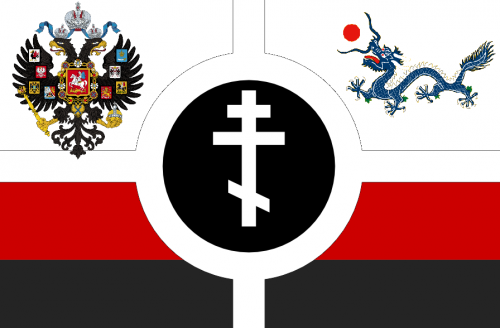
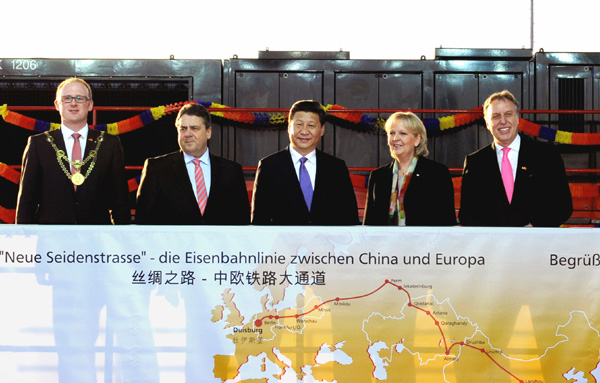
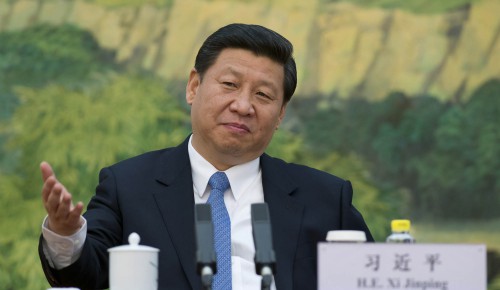
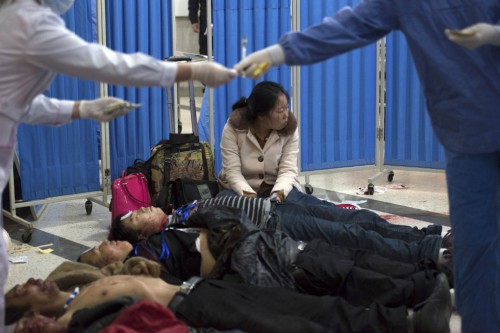
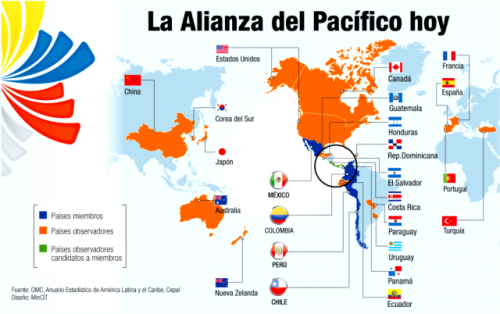

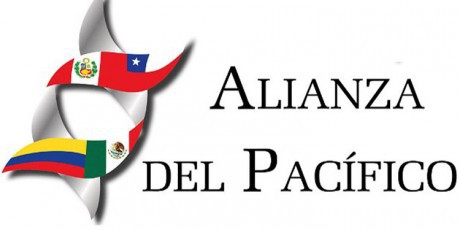
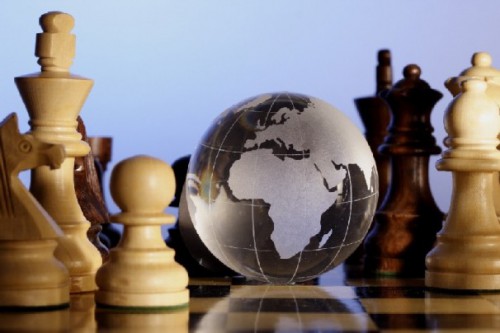
![Moore[Main].jpg](http://euro-synergies.hautetfort.com/media/00/02/2623624553.jpg)
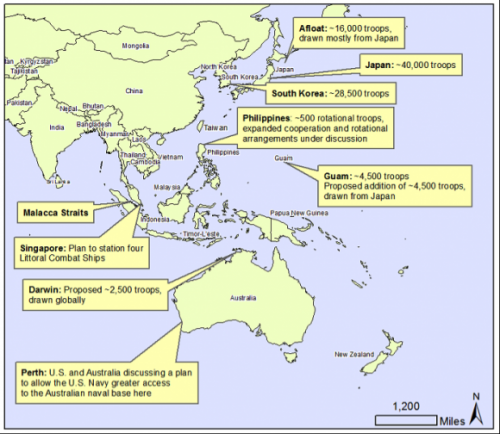

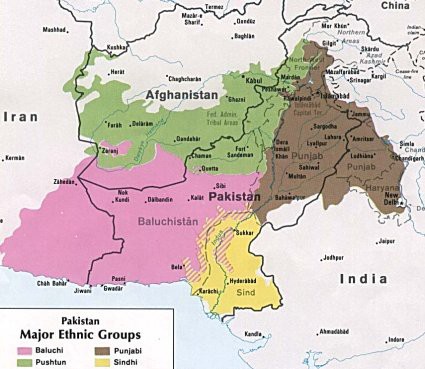





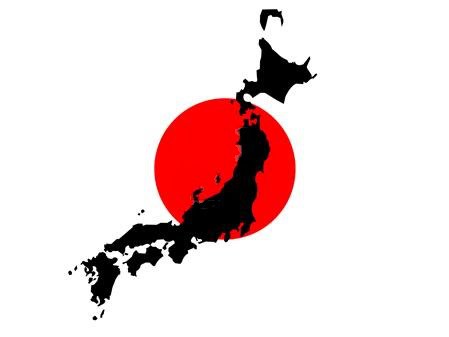

 Avec les Ainu, objet de cet article, les 1,4 million d’habitants des îles Ryûkyû (actuelle préfecture d’Okinawa, annexée en 1879, puis occupée par l’armée étatsunienne entre 1945 et 1972) ont aussi bénéficié d’un statut particulier, parce que peuple autochtone. Engagés dans la lutte pour la rétrocession de l’île au Japon, les habitants d’Okinawa ont vu leur niveau de vie nettement amélioré, bien qu’encore inférieur à celui des autres préfectures japonaises.
Avec les Ainu, objet de cet article, les 1,4 million d’habitants des îles Ryûkyû (actuelle préfecture d’Okinawa, annexée en 1879, puis occupée par l’armée étatsunienne entre 1945 et 1972) ont aussi bénéficié d’un statut particulier, parce que peuple autochtone. Engagés dans la lutte pour la rétrocession de l’île au Japon, les habitants d’Okinawa ont vu leur niveau de vie nettement amélioré, bien qu’encore inférieur à celui des autres préfectures japonaises.
 En 1968, le gouvernement japonais fait un pas en faveur de la communauté en révisant partiellement la loi de 1899 (sans en modifier le caractère discriminatoire) et en proposant des aides sociales. S’inspirant des mouvements de revendications des peuples autochtones de par le monde et des mouvements anti-colonialistes de libération nationale, le mouvement revendicatif ainu adopte une stratégie internationale, se fondant sur la charte internationale des droits de l’Homme.
En 1968, le gouvernement japonais fait un pas en faveur de la communauté en révisant partiellement la loi de 1899 (sans en modifier le caractère discriminatoire) et en proposant des aides sociales. S’inspirant des mouvements de revendications des peuples autochtones de par le monde et des mouvements anti-colonialistes de libération nationale, le mouvement revendicatif ainu adopte une stratégie internationale, se fondant sur la charte internationale des droits de l’Homme.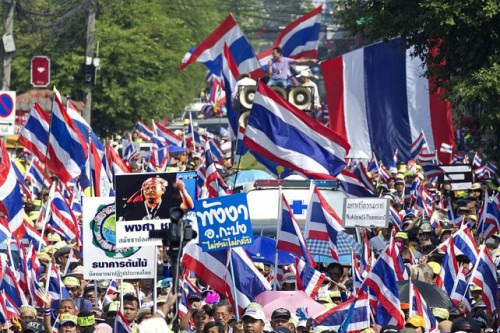
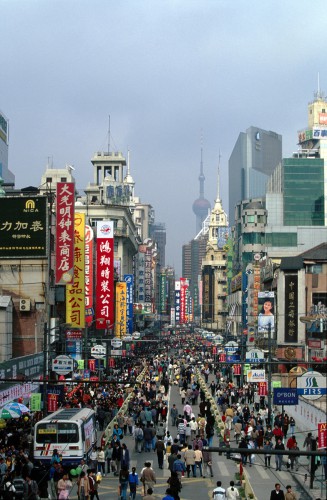

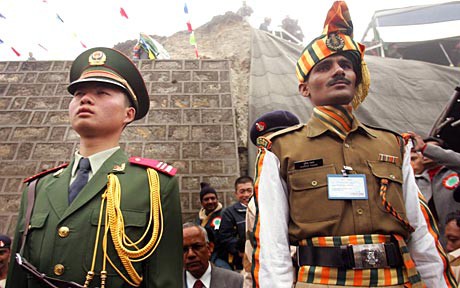
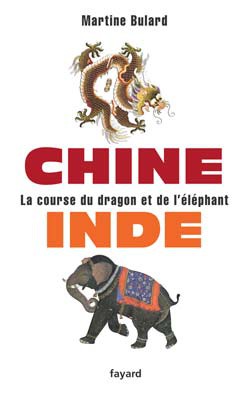 La sfida cinese lungo le frontiere deve essere analizzata chiaramente in ogni sua parte. In assenza di un confine ben definito, una delle sfide consiste nel garantire che la zona contestata della LAC non si ampli a causa dell’abilità logistica della Cina nel perseguire un atteggiamento attivista di perlustrazione in tempo di pace. Questo può essere affrontato solo, come già accennato, concentrando l’attenzione sulla logistica e sulle capacità di monitoraggio, insieme a un approccio dinamico alla gestione delle frontiere. Inoltre, dato che l’India possiede un territorio più basso, deve anche fare leva sulle misure di confidence-building (CBM) e intanto negoziare nuove norme per vincolare le capacità superiori della Cina in termini di flessibilità e pattugliamento. Se sfruttate prudentemente, le CBM possono aiutare nel mantenimento di uno status quo stabile.
La sfida cinese lungo le frontiere deve essere analizzata chiaramente in ogni sua parte. In assenza di un confine ben definito, una delle sfide consiste nel garantire che la zona contestata della LAC non si ampli a causa dell’abilità logistica della Cina nel perseguire un atteggiamento attivista di perlustrazione in tempo di pace. Questo può essere affrontato solo, come già accennato, concentrando l’attenzione sulla logistica e sulle capacità di monitoraggio, insieme a un approccio dinamico alla gestione delle frontiere. Inoltre, dato che l’India possiede un territorio più basso, deve anche fare leva sulle misure di confidence-building (CBM) e intanto negoziare nuove norme per vincolare le capacità superiori della Cina in termini di flessibilità e pattugliamento. Se sfruttate prudentemente, le CBM possono aiutare nel mantenimento di uno status quo stabile.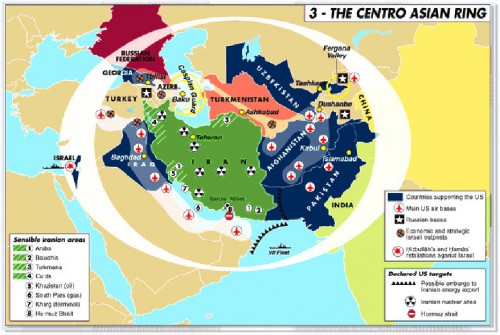
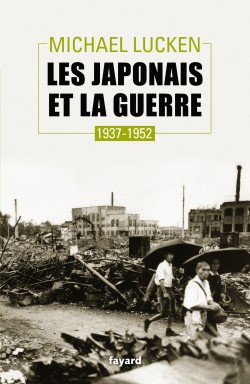 Michael Lucken est professeur des université près l'Institut des langues et des civilisations orientales, spécialiste de l'art japonais, spécialité qui est une des pièces maîtresse du dispositif analytique et des sources exploitées par l’auteur pour saisir notamment les mécanismes psychologiques ayant animé les Japonais pendant la guerre de l'Asie-pacifique et l'immédiat après-guerre (fin de l'occupation américaine). Rien de plus précieux en effet, en une période où la parole publique n'est pas nécessairement libre, que de recourir aux sources littéraires, graphiques et visuelles pour saisir l'ampleur affective du drame, son appropriation par les Japonais et son instrumentalisation par les pouvoirs politiques nippons et américains.
Michael Lucken est professeur des université près l'Institut des langues et des civilisations orientales, spécialiste de l'art japonais, spécialité qui est une des pièces maîtresse du dispositif analytique et des sources exploitées par l’auteur pour saisir notamment les mécanismes psychologiques ayant animé les Japonais pendant la guerre de l'Asie-pacifique et l'immédiat après-guerre (fin de l'occupation américaine). Rien de plus précieux en effet, en une période où la parole publique n'est pas nécessairement libre, que de recourir aux sources littéraires, graphiques et visuelles pour saisir l'ampleur affective du drame, son appropriation par les Japonais et son instrumentalisation par les pouvoirs politiques nippons et américains. 
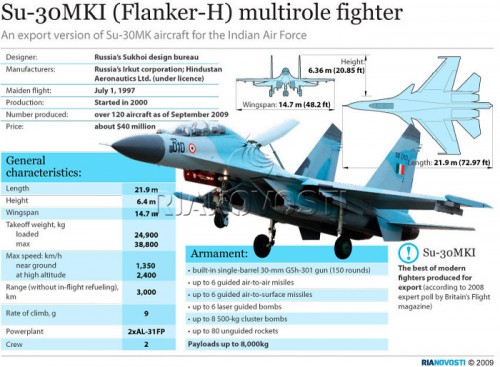
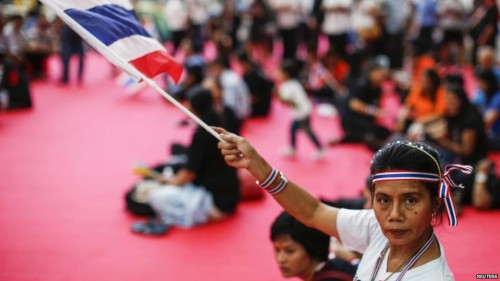

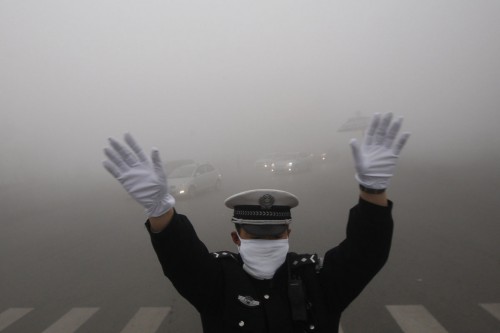
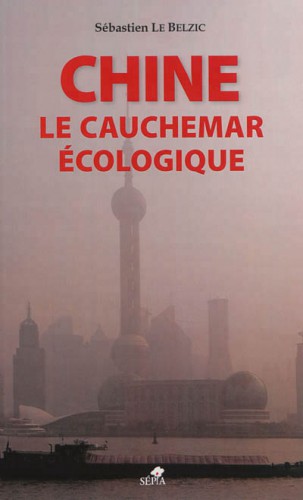 Chine : le cauchemar écologique est le titre du dernier ouvrage de Sébastien le Belzic, correspondant de presse en Chine et romancier (
Chine : le cauchemar écologique est le titre du dernier ouvrage de Sébastien le Belzic, correspondant de presse en Chine et romancier (